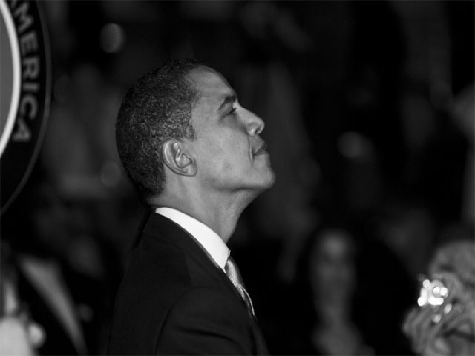
In the final days of the 2012 campaign, it looks like the Obama campaign has decided to peel away the veneer of “likeability” that his strategists had once considered an advantage over Mitt Romney. Under pressure from an apparent Romney surge, someone – perhaps even Obama himself – has decided to let Obama be Obama. But, considering the strong narcissistic streak that many observers have noted in Obama’s character, that decision could prove to be one of the more colossal tactical blunders in recent political history.
A candidate’s personality – often described generally as likeability – can greatly affect the way in which his or her policies are perceived. Richard Nixon was far more moderate than Ronald Reagan, but the news media were able to use Nixon’s somewhat stiff and less approachable personality to paint him as the more sinister extremist. The media tried depicting Reagan as a dangerous cowboy who would start a nuclear war, but Reagan’s engaging and approachable personal style belied that depiction. As a result, voters gave both Reagan and his conservative ideas a chance, and America became stronger at home and abroad.
In fact, when President Reagan was under pressure to moderate his positions in order to undermine the media’s narrative that he was a dangerous extremist, the rallying cry from his conservative base was, “Let Reagan be Reagan.” The conservative base was confident that the extremist label would not stick, because Reagan’s easy likeability shone through the media fog, and they were right. But that approach only works when the real person is the person you want voters to see.
Obama’s long history of association with left-wing extremists and the radicalism of his agenda have created a real marketing challenge for his supporters in the media. The history and the agenda were managed well enough during the 2008 campaign simply by the media’s refusal to vet Obama as a candidate and by attacking anyone who tried to vet him. In those heady days, Obama’s presentation of himself in messianic terms came across as confidence and actually added to the enthusiasm of his supporters.
But now, four years later, the tidal wave of enthusiasm has receded and the results of Obama’s economic and foreign policies lay revealed in the wake. We are left looking at Obama the man, without the distraction of all the messianic trappings. And it is hard to put a positive spin on the arrogance, snide condescension, and intolerance for disagreement that have become increasingly apparent in Obama’s style as the pressure of the campaign mounts.
Confidence is an essential characteristic in effective leadership. Taken to the extreme, however, it takes on an air of arrogance and begins to look more like compensation than true confidence. The distinction between confidence and arrogance can be difficult to describe, but it is easily detectable by most voters. One of the most classic put-downs in American politics was Reagan’s “There you go again” to Jimmy Carter during a debate in the 1980 campaign. Carter had been nettling on about a point that had long been settled, and Reagan gave him what came across as a grandfatherly correction, stern but light-hearted. The remark was devastating in its effect, but Reagan was able to deliver it without coming across as rude or vicious.
Compare Reagan’s tactic with Obama’s comment about military strength in the third debate with Mitt Romney: “We have these things called aircraft carriers where planes land on them. We have these ships that go underwater, nuclear submarines.” It was bad enough that Obama had his facts wrong about the military having given up the use of bayonets, but that could be dismissed as the kind of gaffe that any candidate could make. Far more damaging to Obama’s image was the fact that he came across more like a snarky teenager than a mature leader. Even if he had solid rebuttals for Romney’s challenges, Obama’s rudeness and sarcasm overshadowed any points that he could have made.
Viewers had to wonder at some level if that same condescending attitude is finding its way into Obama’s handling of disagreement with foreign leaders. Perhaps Bibi Netanyahu was saying to himself, “Welcome to my world, Mitt.”
It is difficult for people in powerful positions to manage others effectively if they cannot first manage their own egos. The pressure of the job, the approval from some and the disapproval from others, and the constant personal exposure all put intense emotional strain on even the most balanced of egos. Reasonable confidence is a plus in those moments, but an exaggerated sense of one’s importance can lead to blaming, distortion, and outright lying to protect that image.
With news reports now indicating that the White House was told within two hours of the Benghazi attack that a radical Islamic group was claiming responsibility, Obama is now facing a test of personal character as well as leadership. In his handling of those revelations and the unraveling of his administration’s versions of those events, the nation will see more clearly why character ranks alongside competence in the requirements for effective leadership.

COMMENTS
Please let us know if you're having issues with commenting.